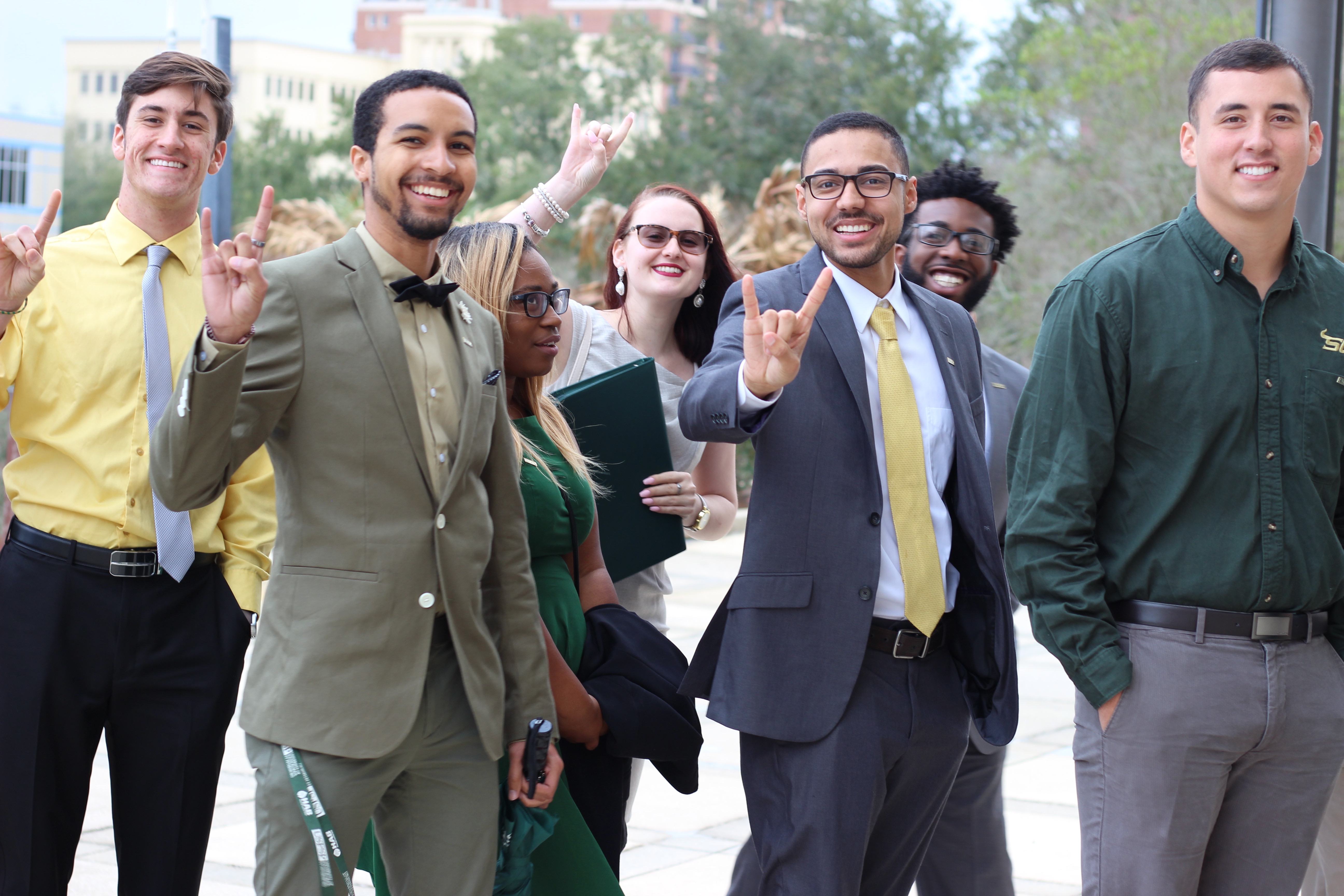Above photo: Students from all three USF system campuses were tasked with lobbying Florida legislators in February 2017. Michael Moore Jr. | The Crow’s Nest
What’s all the fuss I’m hearing about the university’s accreditation?
Last week influential lawmakers in Tallahassee introduced legislation that would abolish the independent accreditation that this campus has had since 2006 and put all three campuses in the USF system – St. Petersburg, Sarasota-Manatee and Tampa – in one university controlled by Tampa.
What’s accreditation and why is it important?
It is considered a crucial measure of an institution. To get accredited, a school must undergo a rigorous review from an outside agency, in our case the Southern Association of Colleges and Schools. SACS studies the school’s mission and the resources, services and programs it offers to maintain that mission. When we got separate accreditation, it gave our campus a jolt of prestige and helped us get more control over hiring, curriculum and student admissions.
What does the legislation say?
If adopted, the USF system would have until Jan. 15, 2019, to prepare a plan to “orderly phase out” the separate accreditation of the St. Petersburg and Sarasota-Manatee campuses so that the three schools would operate under a single accreditation by July 1, 2020. The planning would be conducted in a way that “minimizes any disruption” to students on the three campuses.
How far along is the bill?
It suddenly appeared last week, tucked into the last two pages of a 52-page bill, and was approved by a House subcommittee. To become law, it must pass additional hurdles in the House and the Senate and pass muster with Gov. Rick Scott.
It was buried on the last two pages of a 52-page bill? Isn’t that sneaky?
Yes.
Who is sponsoring the bill?
On paper, the sponsor is Rep. Ray Rodrigues, R-Estero, the House majority leader. But the principal champion seems to be Rep. Chris Sprowls, R-Palm Harbor, who is in line to become speaker of the House – one of the two or three most powerful posts in state government – in two years.
What are the sponsors hoping to achieve?
USF Tampa is poised to become what the state calls a pre-eminent state university. That would entitle it to receive extra money each year from the Legislature. As it stands now, the St. Petersburg and Sarasota-Manatee campuses would not receive any of that extra money. But if they fall under a single accreditation, sponsors say, that would change.
What is a pre-eminent state university?
This designation was cooked up by legislators in 2013 to help state universities move up in the pecking order of the nation’s most prestigious schools. Schools that meet at least 11 of the 12 benchmarks set by the state – including size of endowment and research expenditures, admission standards, freshman retention rate and four-year and six-year graduation rates – get millions in extra money.
What are the state’s pre-eminent universities now?
The University of Florida and Florida State, which in 2017 received an extra $17.3 million from the state, according to the News Service of Florida. USF Tampa, which is poised to join them this year, last year received $8.7 million extra as an “emerging pre-eminent” school. (UCF is also an emerging pre-eminent school.)
Won’t USFSP and USFSM – which don’t perform as well as USF Tampa on certain benchmarks – pull down USF’s numbers if the three campuses are folded into one?
Yes, as things now stand. But Sprowls argues that this would compel Tampa administrators to pour more resources into the two smaller campuses. A rising tide lifts all boats, he says.
What would our campus lose if we lost our accreditation?
That’s the $64,000 question. Would Tampa administrators really put more money and resources in St. Petersburg? Would it allow St. Petersburg to maintain its distinctive identity, its key role in St. Petersburg’s so-called Innovation District, its emphasis on minority and non-traditional students? As interim Regional Chancellor Martin Tadlock said at a campus forum Friday, a lot of questions are simply unanswerable at this point.



